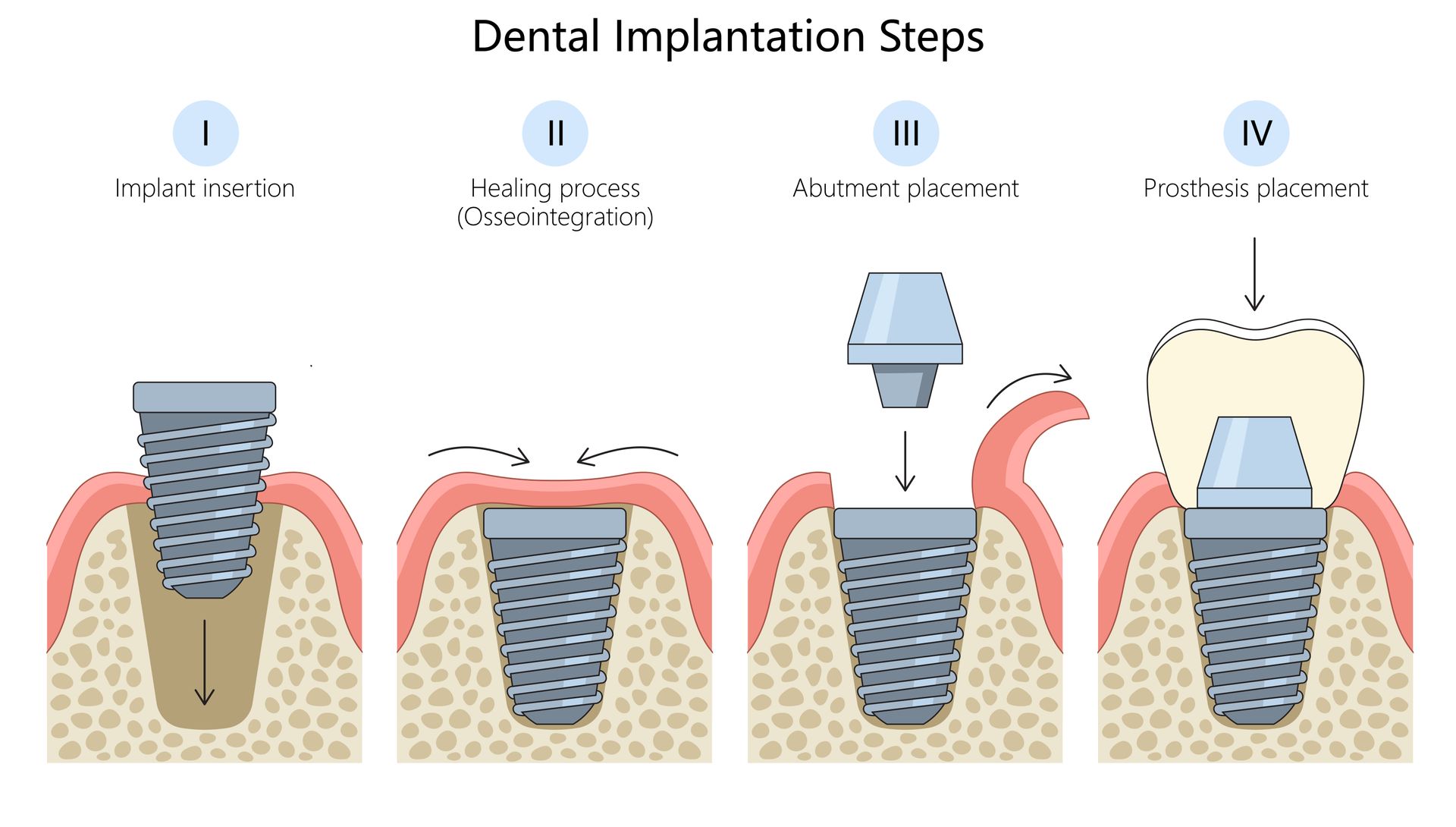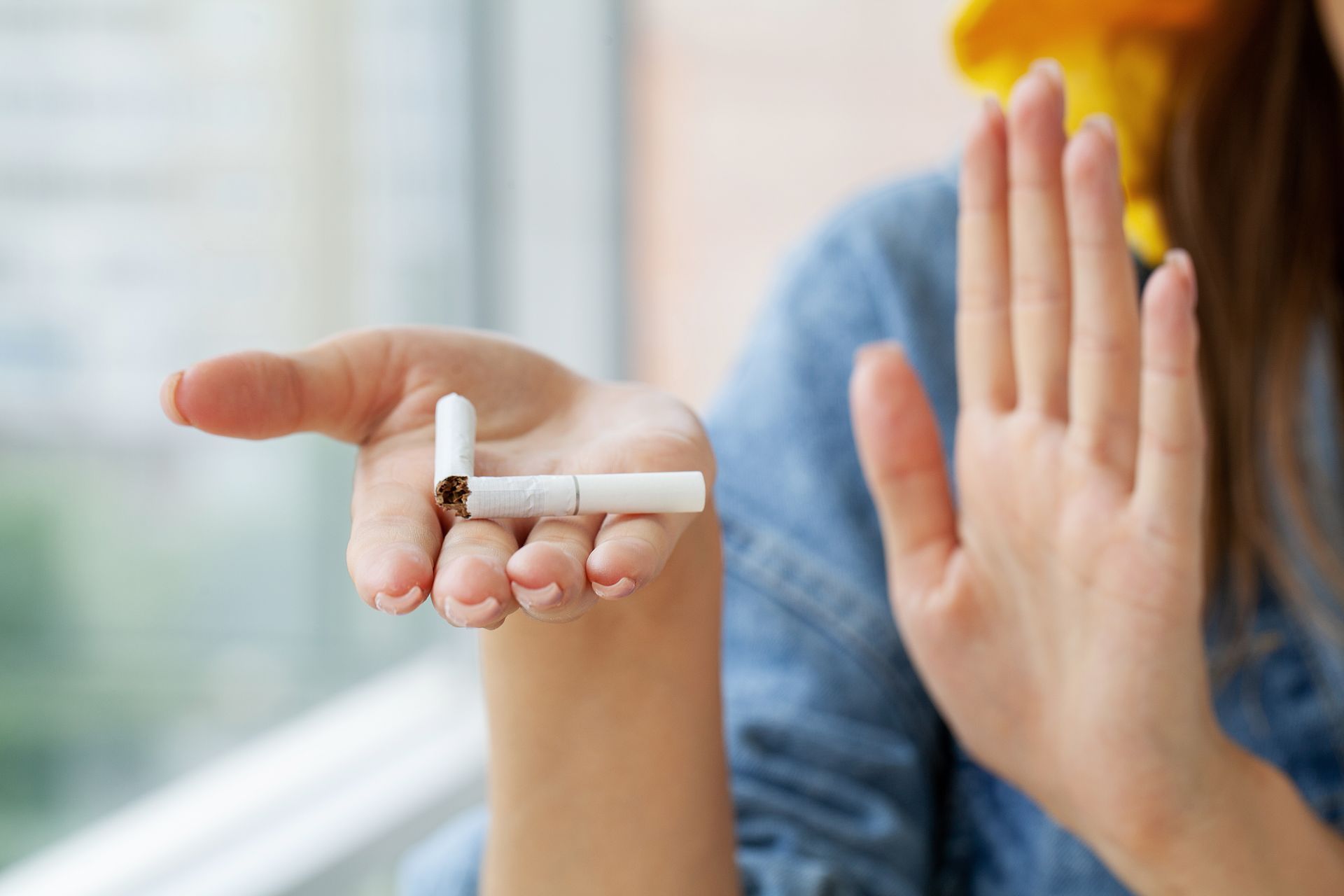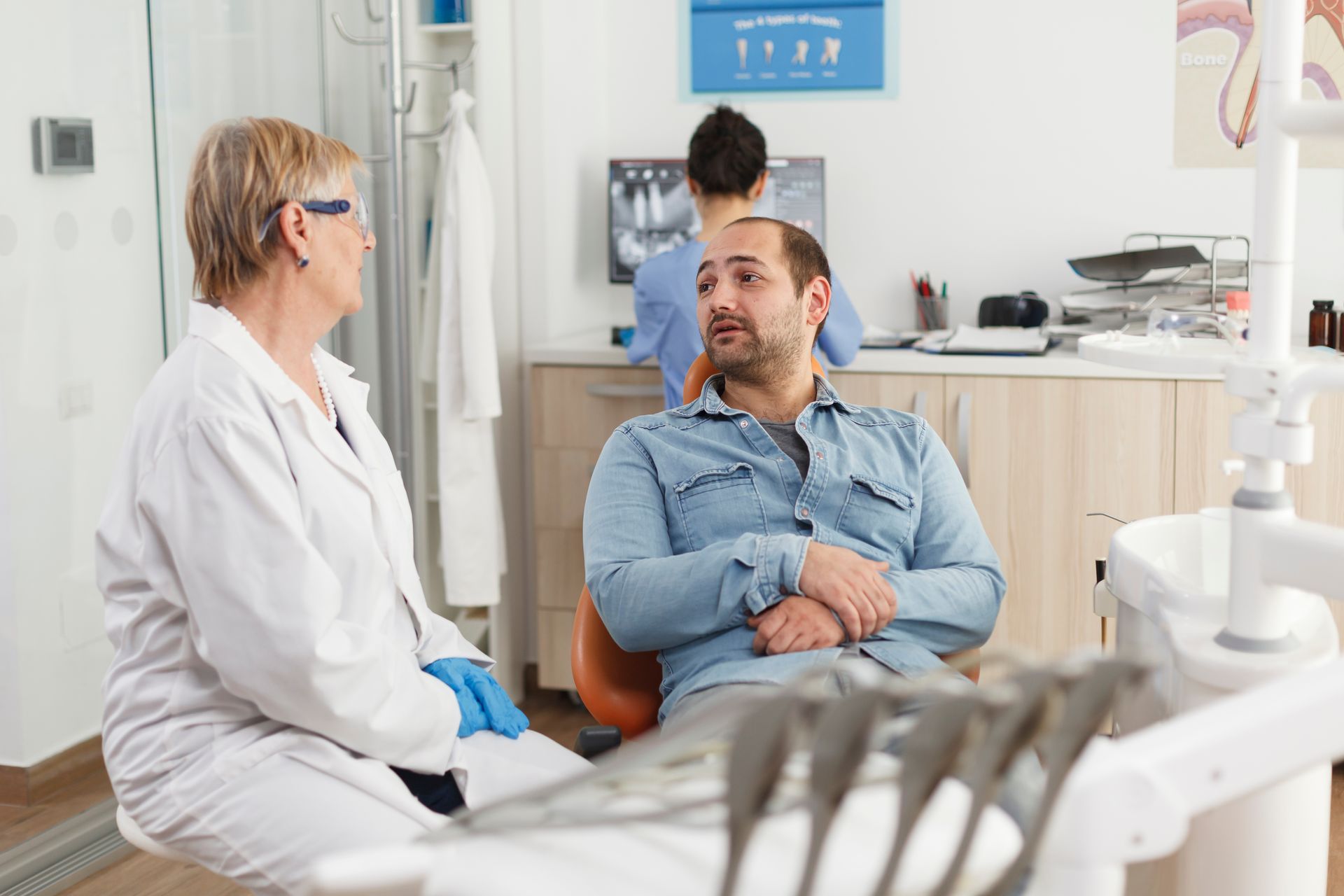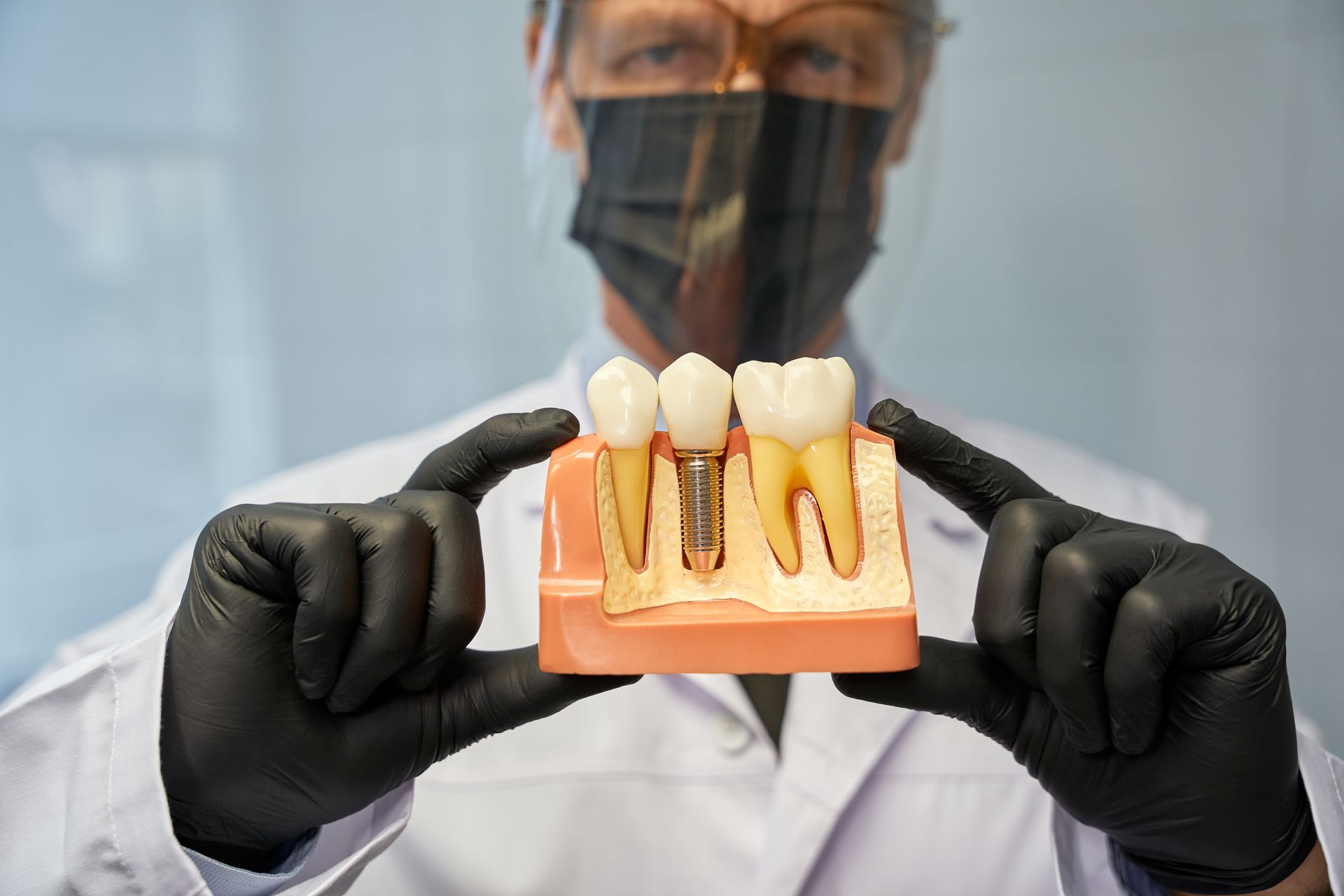How Smoking Impacts Dental Implant Healing
Can you smoke after dental implants?
The short answer is: no, smoking is strongly discouraged after dental implant surgery. Even light or occasional smoking can slow healing and significantly increase the risk of implant failure.
Let’s break down why smoking after dental implants can cause serious complications—and what you should know before and after surgery.
Why Smoking Puts Your Dental Implants at Risk
Dental implants rely on healthy tissue and bone to properly heal and stay secure. Smoking interferes with both. The nicotine in cigarettes restricts blood flow, reducing the amount of oxygen and nutrients reaching the surgical site. This slows down the body’s ability to heal and makes it harder for your gums and jawbone to recover from surgery.
Smokers are also at a much higher risk for oral infections and gum recession, both of which can compromise the stability of an implant. If the surrounding tissues don’t heal correctly, the implant may become loose or fail entirely.
How Smoking Interferes with Osseointegration

Osseointegration is the process where the implant fuses with your jawbone. This step is critical—without it, the implant can’t function like a natural tooth. Unfortunately, smoking has been shown to disrupt or delay osseointegration, making it harder for the implant to become secure in the bone.
Studies show that smokers are two to three times more likely to experience implant failure compared to non-smokers. Even if the implant initially feels stable, long-term success can be compromised if healing was interrupted by smoking.
Is Light or Occasional Smoking Safer?
It’s a common question—“What if I only smoke a little?” Unfortunately, the answer is the same. Even one or two cigarettes a day can negatively affect healing. Tobacco use introduces harmful chemicals and reduces blood flow no matter the quantity. There’s no safe amount of smoking after dental implant surgery.
How Long Should You Avoid Smoking After Implant Surgery?

Most dental professionals recommend quitting at least one to two weeks before the procedure and continuing to abstain for at least two to four weeks afterward—though longer is always better. The healing process varies by patient, and the more time your body has without nicotine, the better the chances of full recovery and implant success.
If quitting long-term feels overwhelming, even temporary cessation during the critical healing window can help improve outcomes.
Tips for Smokers Considering Dental Implants
If you're a smoker and interested in dental implants, you're not alone—and you're not automatically disqualified. Here are a few tips to improve your chances of success:
- Talk to your dentist openly about your smoking habits.
- Plan to quit or pause smoking at least a few weeks before and after the procedure.
- Use cessation aids like patches or gum to support temporary quitting.
- Keep your mouth clean with excellent oral hygiene practices.
- Stick to follow-up appointments to monitor healing progress.
Conclusion:
Smoking and dental implants don’t mix well—but with the right precautions and support, it’s possible to achieve a healthy, lasting result. If you’re considering implants, be upfront with your dentist and take proactive steps to protect your investment and your health.
FREQUENTLY ASKED QUESTION'S
ABOUT HOW SMOKING CAN AFFECT DENTAL IMPLANTS
How soon can you smoke after a dental implant?
It’s recommended to avoid smoking for at least 72 hours after surgery, but ideally 2–4 weeks or longer. This healing period is critical for osseointegration and tissue recovery. Smoking too soon can compromise healing and increase the risk of failure.
Will my implants fail if I smoke?
Smoking does not guarantee failure, but it significantly increases the risk. Studies show that smokers have a 2 to 3 times higher implant failure rate than non-smokers due to impaired healing and increased infection risk.
Can smoking affect your dental implants?
Yes — smoking can delay healing, reduce bone integration, cause gum recession, and increase the risk of infection. All of these factors can jeopardize the long-term success of dental implants.
What is the failure rate of dental implants in smokers?
Implant failure rates in smokers range from 15% to 20%, compared to 5% or less in non-smokers. The exact rate varies depending on smoking frequency, oral hygiene, and other health factors.
How much smoking will ruin a bone graft?
Any amount of smoking can negatively affect a bone graft. Even light smoking reduces blood flow and oxygenation, which are essential for bone healing. Smoking during the healing period significantly raises the risk of graft failure.




